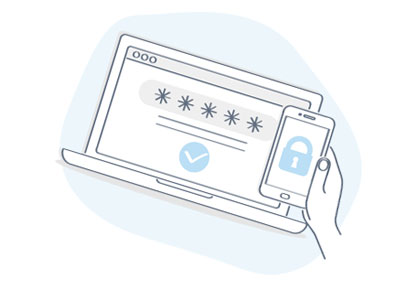VPN security technology has become much more prevalent in 2020. It is one of the most popular ways to provide security for a remote workforce. Virtual Private Network (VPN) usage in the US grew 50% in March 2020, according to Network World. As you look at ways to scale up VPN to protect your organization, it’s an excellent time to take a second look at this technology to understand its advantages and limitations.
What is VPN Security?
Virtual private networks (VPNs) have been around for years. In simple terms, a VPN makes it possible to access a secure network from another network (e.g. a home WiFi network) without losing security. From the end user’s point of view, they can access all of the data and applications just like they were in the office. However, VPN systems usually do not have the same bandwidth capabilities as regular networks, so congestion and connectivity problems sometimes occur when there is heavy usage. Today, VPN security is in the news because they are a critical tool to enable remote access to corporate systems.
What Are The Top VPN Security Benefits?
From an IT security point of view, providing a VPN provides a few security and productivity benefits. First, it makes it possible for your users to connect to your networks from outside your office. These services play an essential role in protecting data security during transmission. As a result, VPN security gives you the flexibility to protect a remote workforce.
Why You Can’t Rely on VPN Security For Everything
There’s no question that VPN security is an important part of your security plan. However, it is essential to appreciate the limitations of this technology. For example, your remote workforce may be using Internet service providers that are less reliable. That means end-users may suffer disconnects while they are trying to work. If these problems get worse, your staff may resort to less secure ways to get corporate information (e.g. emailing corporate data to a personal email account). In addition, VPN security relies on passwords and other authentication factors to grant access. If a password is compromised, VPN security will suffer significantly.
Simple Ways To Coach Employees On VPN Security
Depending on your workforce, some people may be less experienced with how to use VPN systems. To preserve your security, proactively provide training resources to your employees. At a minimum, give a few dos and don’ts to reduce security risk. Use the following examples as a starting point:
- Do Use The VPN Every Day To Connect To The Network.
- Don’t Use Video and Audio Intensive Activity While Connected To The VPN. These services may cause the VPN to become overwhelmed.
- Do Write Down IT Support Contact Information. If you can’t connect to the corporate network due to a VPN problem, you might not be able to look up contact details for the IT help desk. Do yourself a favor and save these details to your phone now.
- Don’t Rely Exclusively On The VPN For Security. Continue to use other tools like multi-factor security to ensure all reasonable steps are taken to protect corporate data.
- Do Report VPN Problems Quickly. When there is a problem with your VPN access, reach out to your manager or IT quickly so the problem can be fixed.
Enhancing VPN Security With Multi-Factor Authentication (MFA)
Now, we have some good news for you. There are ways to support VPN security. Specifically, use multi-factor authentication to protect your company’s most sensitive applications. In addition, you may want to require additional security protections for users with special access like executives and IT managers. For MFA security to add the most value, you need to guide your employees on how to best use it.
With Avatier MFA, you have plenty of options to roll out multi-factor authentication. If your employees are already under stress, we recommend keeping your MFA program simple. You can always add further controls later on if needed. Ask yourself: do most of your employees have access to a smartphone? If so, you can use that smartphone to enhance security in several ways.
Your first option is to send an SMS code to an employee’s cell phone when they attempt to login. When they receive the message, they will then enter it into your system to log in. Using SMS or text messages for authentication is excellent because this will work on nearly every phone in the market. If your employees have a modern smartphone, you can further improve security by using the Avatier mobile apps
Enhance VPN Security With Password Management
Like it or not, VPN security cannot overcome password problems. For example, if employees reuse passwords at work, then you will be more vulnerable to a security failure. To avoid those situations, you need strong controls over your passwords. Start by offering employee password training. After you’ve provided training, use a password management solution to enforce your password policy. For example, Password Station makes it easy to reset passwords using a phone PIN and create custom security questions.
Add VPN Security To Your IT Security Monitoring Process
Constant vigilance is the price of successful IT security. If you don’t keep a close eye on your security systems and processes, you may be caught off guard by a new vulnerability. Therefore, we recommend adding VPN security to your process. For example, you might set a monthly meeting with your VPN provider to ask them about their security, patches and other relevant updates.
The Last Word On VPN Security
VPN security is mission-critical to protecting security for a remote workforce. However, do not overestimate how much security protection these networks provide. It remains important to carry out security upkeep activities like removing inactive user accounts. Managers need to keep reinforcing good password habits with their employees. Ultimately, it is best to see VPNs as one part of a wider IT security strategy.




